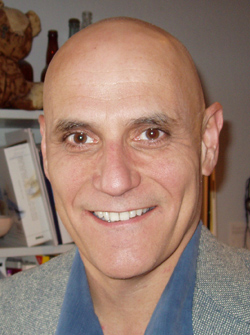Psychology’s ‘third wave’
 Time Magazine’s website features an excellent essay entitled “The Third Wave of Therapy” by John Cloud. The third wave follows the psychodynamic and cognitive-behavioral waves and is called Acceptance and Commitment Therapy (ACT). Its creator is Steven Hayes.
Time Magazine’s website features an excellent essay entitled “The Third Wave of Therapy” by John Cloud. The third wave follows the psychodynamic and cognitive-behavioral waves and is called Acceptance and Commitment Therapy (ACT). Its creator is Steven Hayes.
In actuality, there’s nothing very new about ACT. I was stunned, reading the lengthy article, to find no mention of Buddhism — just one rather dismissive reference to Hayes’ engagement in his youth in some esoteric Eastern practices. But, as far as I can see, there’s very little difference in ACT and the mindfulness training I’ve learned through my participation in the Shambhala meditation path and, before that, zen.
Like classic mindfulness training, ACT teaches clients to accept their “negative” feelings rather than try to dispel them. It also encourages clients to identify and maintain commitment to their values. I have long tried to communicate this to my own clients and it’s often met with resistance.
Cognitive behavioral theory (CBT) like psychodynamic therapy, has thoroughly penetrated the culture, so that clients often arrive thinking they should be able to completely eliminate their troubling thoughts, whether they’re anxiety- or depression-producing. But nothing has been more obvious to me that in many clients — and myself! — this simply isn’t possible.
Mindfulness training teaches, exactly as Hayes does, that if we learn to disidentify with our thoughts, they have far less power over us. Instead of getting hooked into them, we can learn to let them percolate out of mind. The suffering the thoughts cause becomes much less inhibiting, leaving one with a kind of bittersweet feeling about life. I well remember my first apprehension of that following my first Shambhala workshop.
I’m delighted to see Hayes’ work coming more into mainstream awareness and I’m not surprised to see that some cognitive-behavioral therapists are on their usual rampage about it, claiming it doesn’t have adequate empirical proof yet. In fact, several studies have demonstrated that it is significantly more effective than CBT, but it is true that more research needs to be done. (I was also surprised that the article didn’t mention the brain-imaging studies that have been done with meditators. Nor did it mention the annual meeting between psychologists and the Dalai Lama to discuss brain science and mindfulness.)
My suspicion is that, by avoiding comparisons to Buddhist mindfulness, the essay’s writer was trying to avoid contributing to ACT’s rather cultish reputation and keep it “scientific.” In fact, looking at other articles about Hayes’ work, I found this in an interview with him:
NHP: A lot of what you’re describing sounds Buddhist-inspired. How does ACT differ from Buddhism, both in theory and in the practice it requires?
SCH: Buddhism has a lot of wisdom in it, as do all of the major spiritual and religious traditions, but it emerged from pre-scientific times. Some of its specific ideas show that lineage; some of its methods require weeks, months, and years to work. ACT is in the same general psychological space, but it’s driven by a scientific theory, and its methods are designed to be quicker and more focused. I find it very encouraging that the two overlap because ACT did not come from Buddhism or any specific religious or spiritual tradition. It came from modern contextual psychology. If things from very different starting points overlap in their end points, to my mind this increases the chance that they’re both on to something.
I’ve had my own problems in this regard. Much of my work on my master’s degree was in transpersonal psychology, specifically Buddhist psychology, and was inspired by both my participation in 12-step recovery and the meditation practice I learned from Shambhala.
After a lifetime of conventional psychotherapy, I had found these two modalities far more effective and was excited to find that they had become relatively synthesized in transpersonal psychology. Later, I became interested in Jungian psychology, which also has a strong spiritual component, and, then, I became hypnotized by James Hillman’s soul-based archetypal psychology.
But I grew very tired of having to defend my interests during the last 10 years, when CBT and so-called positive psychology took hold. This wasn’t helped by the fact that transpersonal work became Oprah-ized and turned into New Age baby food. Eckhart Tolle, Oprah’s guru du jour, is also a rewriter of Buddhist psychology and way too cultish for my taste. So, being of a primarily intellectual disposition, I don’t like being identified with a movement that is so touchy-feely, even though I’m well aware intellect needs some of that to humanize itself.
So, I’m glad to see mindfulness training gaining more mainstream acceptance. Give the essay a read.
(Photo of Hayes from an earlier essay about happiness on Salon.com. It’s also an interesting read.)